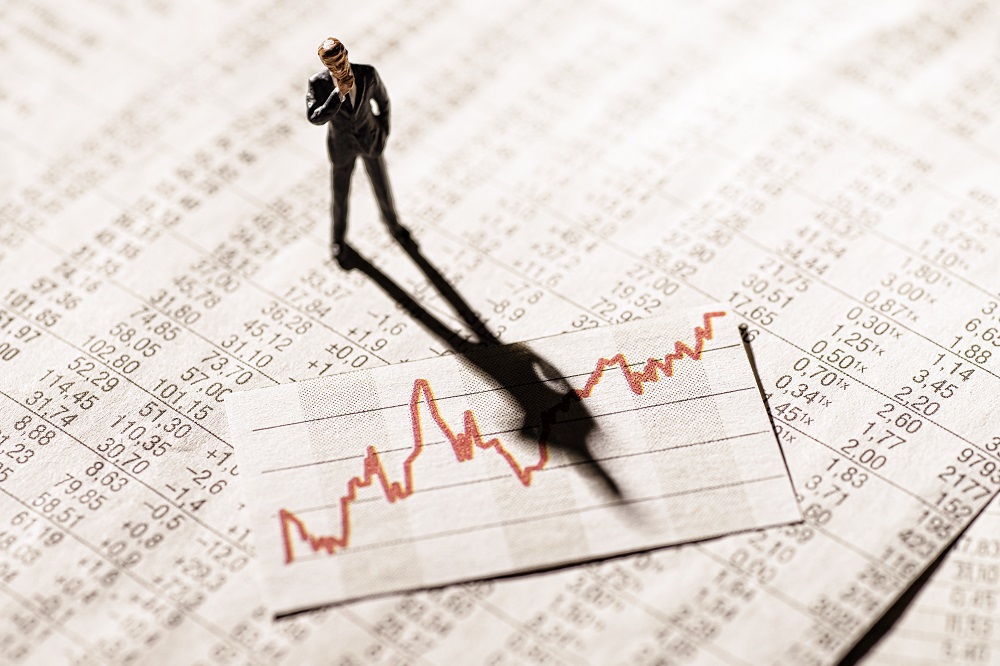

Top 5 investment themes for 2018
Investors spent 2017 monitoring activity in the US, political rhetoric and disruption, economic turmoil in the UK, North Korean activity and the impact of a range of natural disasters. So what should they consider in 2018?
Here are our top 5 themes.
Not since 2010 have we seen coordinated economic growth occurring across most regions and countries. According to the Organisation for Economic Cooperation and Development (OECD), the global economy is now growing at its fastest pace since 2010. The OECD projects that the global economy will grow by 3.6% this year and by 3.7% in 2018, before easing back to 3.6% growth in 2019.
The OECD expects the United States economy to grow at 2.2% in 2017, rising to 2.5% in 2018, then dropping back to 2.1% in 2019. The Eurozone is projected to grow at a 2.4% rate in 2017 and a 2.1% pace in 2018, before slowing to a 1.9% pace in 2019. Growth in China is projected at 6.8% in 2017, 6.6% in 2018, and 6.4% in 2019, as China rebalances its economy to a more domestic focused services-led growth model.
Japan has sealed its longest stretch of economic growth in 23 years, but that might be as good as it gets for a while, according to the OECD: it forecasts 1.5% growth for the Japanese economy for 2017, with growth lapsing back toward 1% in 2018 and 2019 as the decline in the working-age population accelerates.
The OECD also expects the emerging markets to help drive global growth. In particular, it believes India will show 6.7% growth this year, before accelerating to 7% in 2018 and 7.4% in 2019, on the back of reforms that are expected to boost investment, productivity and growth. Russia is well and truly out of recession, with the OECD seeing 1.9% growth in 2017 and 2018, and 1.5% in 2019. The politically troubled Brazil is also expected to exit recession, with a 0.7% growth rate in 2017, before solid improvement to 1.9% in 2018 and 2.3% in 2019. This level of economic growth should support strong growth in company earnings, and underpin improving global trade and commodity prices.
China’s economy surged in 2017, supported by government economic initiatives. With huge infrastructure spending expected to continue, China’s economy is expected to keep humming along – although at a slightly lower rate, as per the OECD forecasts above.
World markets had plenty of warning earlier this year that “quantitative tightening” – the unwinding of “quantitative easing” – was on the way. With the Federal Reserve firmly in quantitative easing mode, the European Central Bank beginning to follow – but with the Bank of Japan lagging, and the Reserve Bank of Australia unlikely to consider raising interest rates until later in 2018 – the world is likely to have a year of monetary policy divergence. Inflation should make a comeback in the US, but spare capacity in the Eurozone and Japan will mean this will not be uniform. In any case, even with quantitative tightening having begun, there is still an estimated US$18 trillion ($23.7 trillion) in the system, so share prices are not likely to come under undue pressure in 2018: if anything, asset prices should remain strong in 2018.
Virtually anywhere an investor looks around the globe, politics is front page news, mostly for the wrong reasons. Washington is stuck in a theme of extreme partisanship; Germany doesn’t have a formal government at present, and may have to re-run its election; “Remainers” in the British parliament seem to be working with Brussels to circumvent the British electorate’s expressed desire to leave the European Union; Australia’s political conversation daily plumbs new depths of inanity relevant only to its participants; and everywhere, populist fringe parties seem to be the only ones profiting from a free-falling trust in politicians. On the geo-political front, North Korea’s regime is increasingly erratic and bellicose; the Middle East is as restive as ever; religious extremists increasingly affect the way modern societies live; and political crises continue to hold back African economic development. But to share markets, none of this matters, as long as company earnings can rise on the back of real economic growth.
Amazon’s impending – now actual – arrival in Australia has weighed heavily on the retail sector in 2017, having a definite impact on some companies’ (and retail landlords’) share prices. Amazon will definitely cut into the revenue and earnings of some Australian players, but it won’t blow the whole sector away. The advent of Amazon will be a good thing if it urges retailers to invest in ways to drive efficiencies, improve customer experience and lower prices.
Managing these themes and any ‘unknown’ market events that may arise in 2018 will come down to having a clear and up-to-date investment strategy, with carefully researched diversified investments, that are constantly monitored and reviewed.
Source: BT.